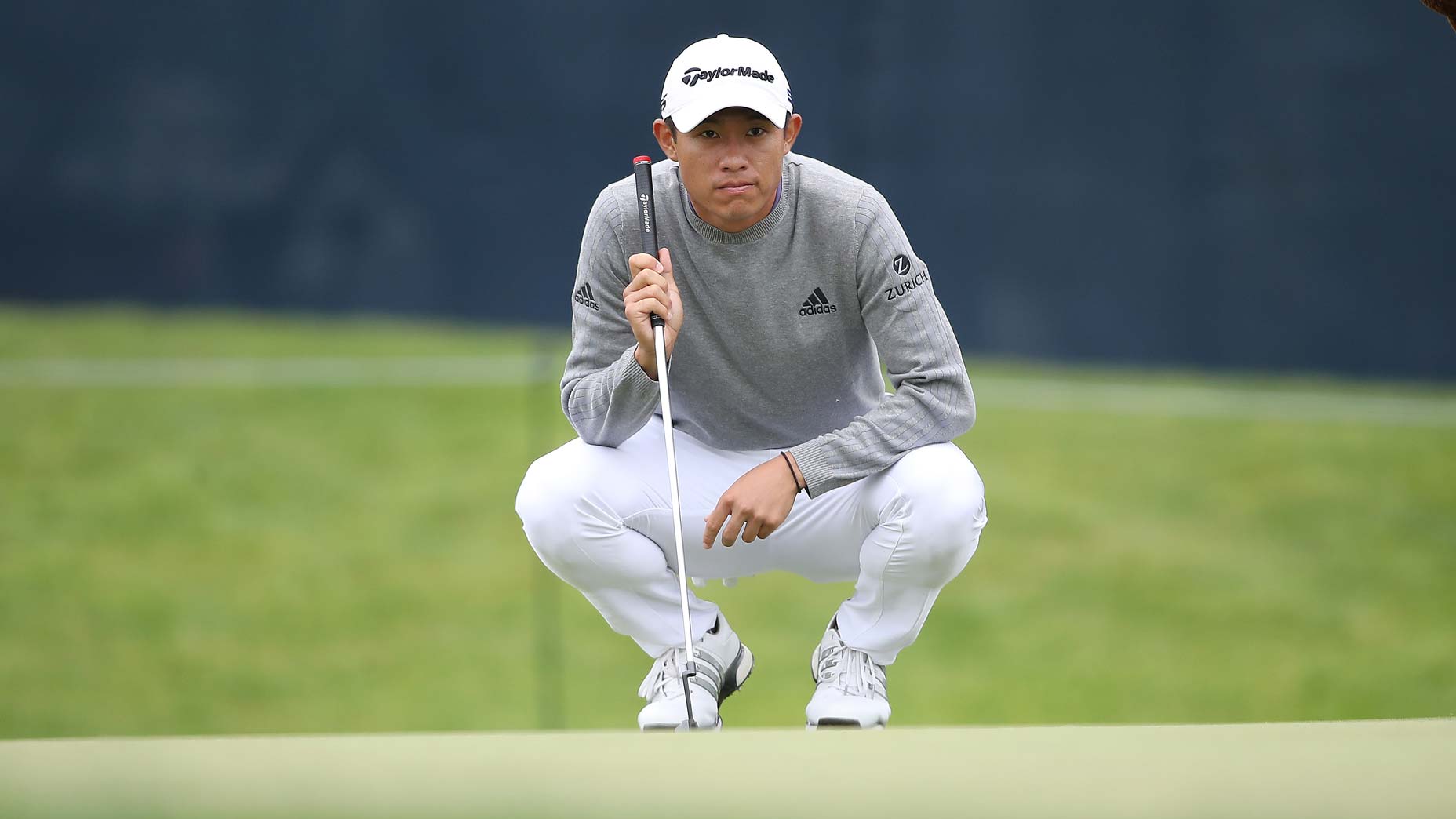The simplest difference between great and good golfers is as much grammatical as it is performative.
Good golfers win. Great golfers are winners.
Anyone can win — it’s a verb, an action. Few are winners — for which the action of winning is so repeated, it is an adjective, a descriptor for their being.
In August, Collin Morikawa won the PGA Championship. He did so in only his second major championship start at the nascent age of 23, emerging from a back-nine seven-way tie as the victor.
Morikawa’s prodigious ballstriking ability and iron-clad mental toughness were overflowing at TPC Harding Park. His precision matched — and in some cases, exceeded — that of many of golf’s elite.
The mechanics of his heroics — a chip-in on the 14th to tie for the lead, a 300-yard drive to six feet on the par-4 16th which led to the go-ahead eagle — seemed to indicate a different kind of victory.
Surely, many believed, we’d witnessed the birth of a winner.
Morikawa’s win was an exclamation point, a pronouncement of the game’s brightest young star. But it quickly ceded into a question mark.
Some wondered whether the buzz around his win (verb) was worthy of anointing him a winner (adjective). Sure, he’d won a major championship, but major wins didn’t turn Danny Willett and Gary Woodland into the game’s best players overnight.
Plus, the naysayers argued, Morikawa had an ace up his sleeve: he grew up in southern California, went to college the Bay Area, and played Harding Park a dozen-or-so times. Had he simply wound up the beneficiary of a home-field advantage?
To his end, Morikawa isn’t losing sleep over the public perception of his win. And in an interview with GOLF.com, he explained why.
“There was a sense of comfort, I knew where everything was,” Morikawa told GOLF.com. “But if you say playing a course a dozen times is a home course advantage, then every player that’s played on the PGA Tour for four-plus years, has a home course advantage at every tour stop they’ve been to.
“Did I feel comfortable? Yes. And was it helpful that I lived in the Bay Area for four years? Absolutely,” he said. “But if it was a home course advantage, I’d know it like the back of my hand. It’s not like I played it a hundred times.”
Then there’s the matter of galleries, or more specifically, the lack of them. Morikawa’s PGA Championship victory was the first major held in the Covid era. There were no spectators on property throughout the week, and no quintessential “Sunday roars” for the first time in decades.
As for whether the silence served to benefit a 23-year-old green on major championship experience, Morikawa wonders whether it actually made life more difficult.
“Yeah, it was way different,” he said. “That being my second major championship, it was way different than seeing a bunch of fans especially with seven guys tied for the lead coming down the final nine holes. Knowing where guys stand — all I had were leaderboards. You weren’t going to hear roars, you weren’t going to hear crowds.”
Rather, in a manner befitting Morikawa’s quiet tenacity, he surged up the leaderboard, darting through the redwoods at Harding Park with calculated brilliance. A feat less dependent on where or when than how.
“People can say it helped me and it did all this, but I’ve never been as focused as I was on those final 18 holes in my life,” he said. “I’m still trying to learn how to tap back into that mentality.”
Nobody has ever accused Morikawa of lacking confidence, but his PGA Championship Sunday wasn’t an exercise in confidence, it was one in determination.
“You could’ve thrown cars driving through, you could’ve thrown anything at me and I wouldn’t have ever even known anything was there,” he said. “I was that focused on finishing that tournament on top.”
As he looks forward to defending his title at Kiawah in 2021, Collin Morikawa is looking back, but only for long enough to admire the view.
“Do I wish there were fans? Absolutely,” he said. “The chip-in on 14 would have erupted, the drive on 16, the putt on 16.
“So many things could have changed, but we all had to go through the same conditions, we all had to go through the same course, and we all had to play the best golf we could for four rounds.”
